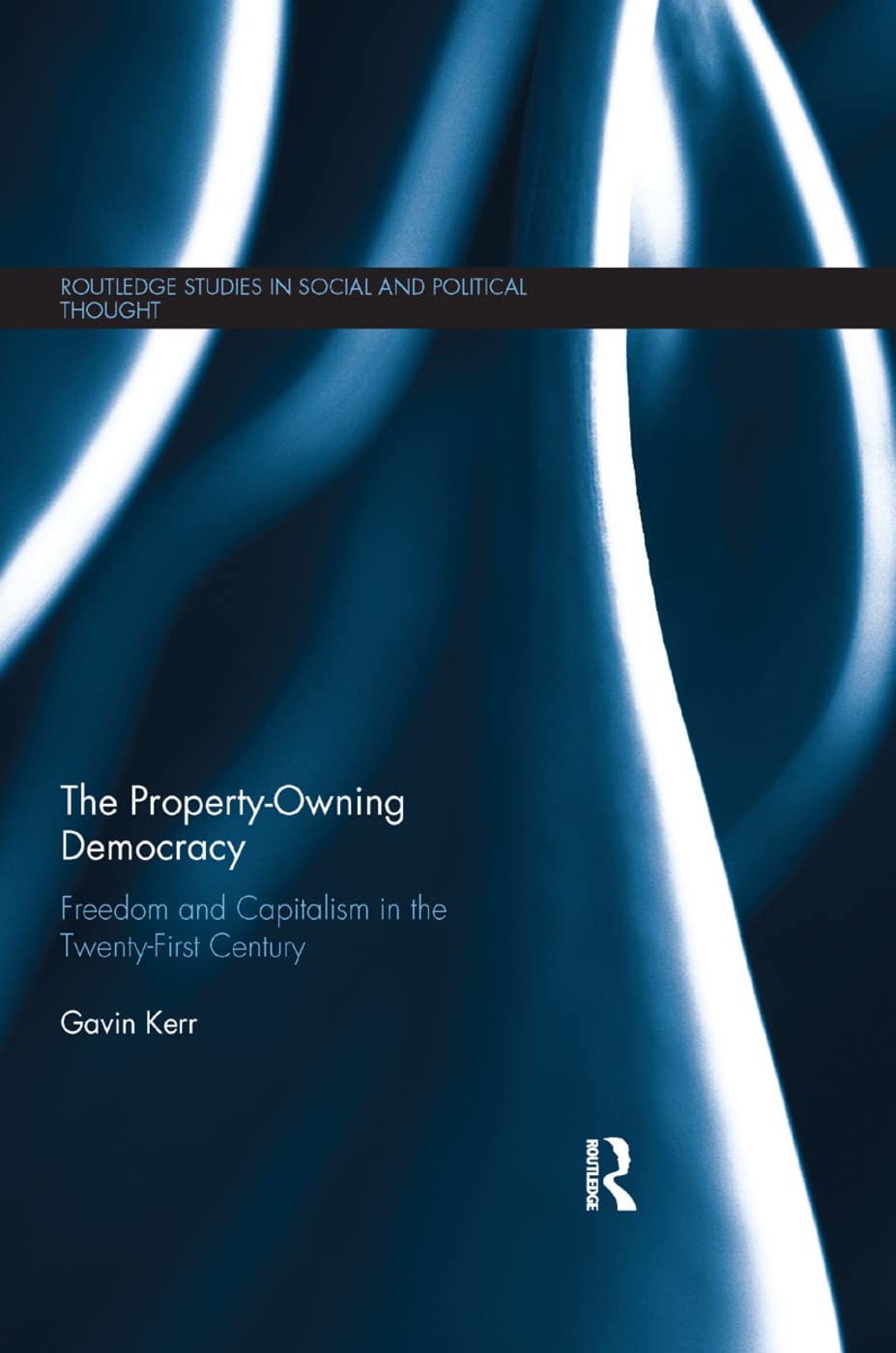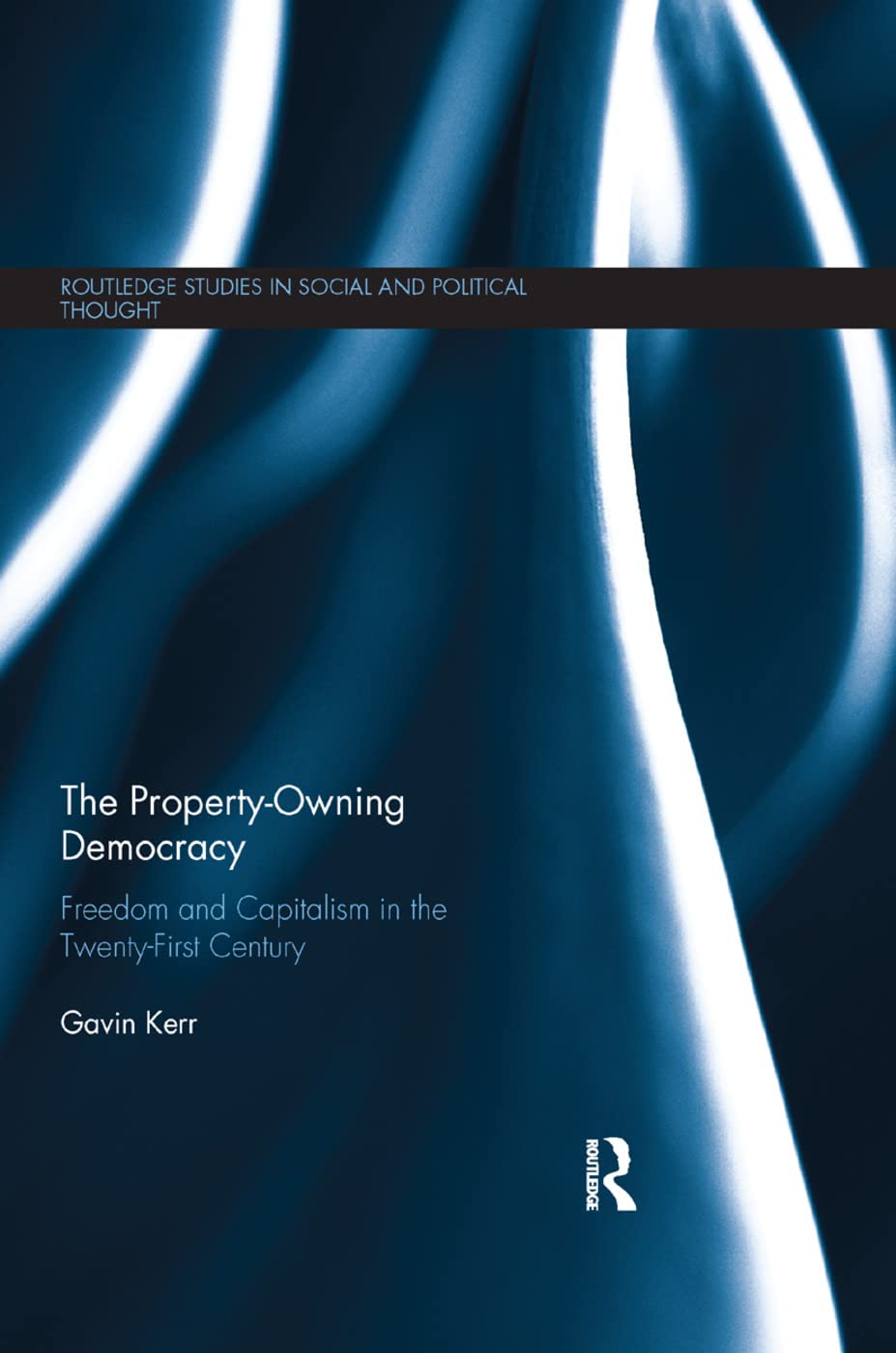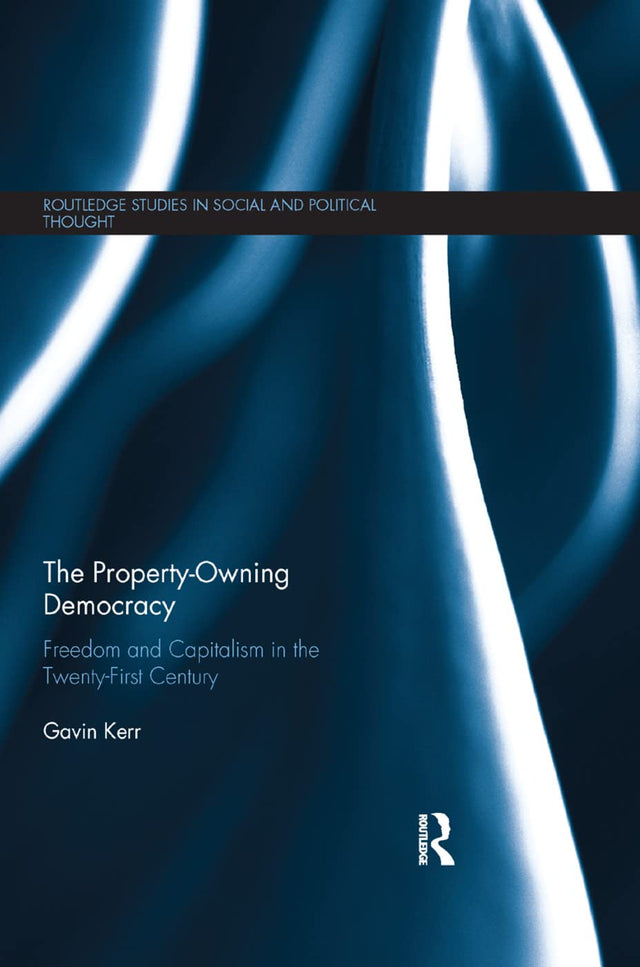The Property-owning Democracy: Freedom and Capitalism in the Twenty-first Century
The Property-owning Democracy: Freedom and Capitalism in the Twenty-first Century is backordered and will ship as soon as it is back in stock.
Couldn't load pickup availability
Genuine Products Guarantee
Genuine Products Guarantee
We guarantee 100% genuine products, and if proven otherwise, we will compensate you with 10 times the product's cost.
Delivery and Shipping
Delivery and Shipping
Products are generally ready for dispatch within 1 day and typically reach you in 3 to 5 days.
Book Details
-
Author: Gavin Kerr
-
Publisher: Routledge
-
Language: English
-
Edition: 1
-
ISBN: 9780367371913
-
Pages: 274
-
Cover: Paperback
-
Dimensions: 9.1 x 6.0 x 0.7 inches
-
Weight: Not provided
About the Book
In Predistribution and Property-Owning Democracy, Gavin Kerr explores the emerging concepts of 'predistribution' and 'property-owning democracy' as progressive alternatives to the welfare state, aiming to address the pressing issues of poverty, unemployment, economic insecurity, and socio-economic inequality. These concepts challenge the traditional welfare state model, which has struggled to effectively resolve these deep-rooted social problems.
The book critically engages with both classical and social liberal thought, striving to bridge the gap between these two strands of liberalism by proposing institutional reforms that are acceptable to both sides. Kerr develops a market democratic interpretation of predistribution and property-owning democracy, advocating for institutional arrangements that both protect 'market freedom' and maximize opportunities for the least advantaged in society.
By focusing on institutional reforms that empower individuals and communities through the redistribution of property and wealth, Kerr offers a compelling and progressive alternative to more conventional social democratic frameworks. This work presents a thought-provoking approach to social justice, combining elements from left-libertarian traditions while offering a fresh perspective that could appeal to both classical and social liberals alike.





